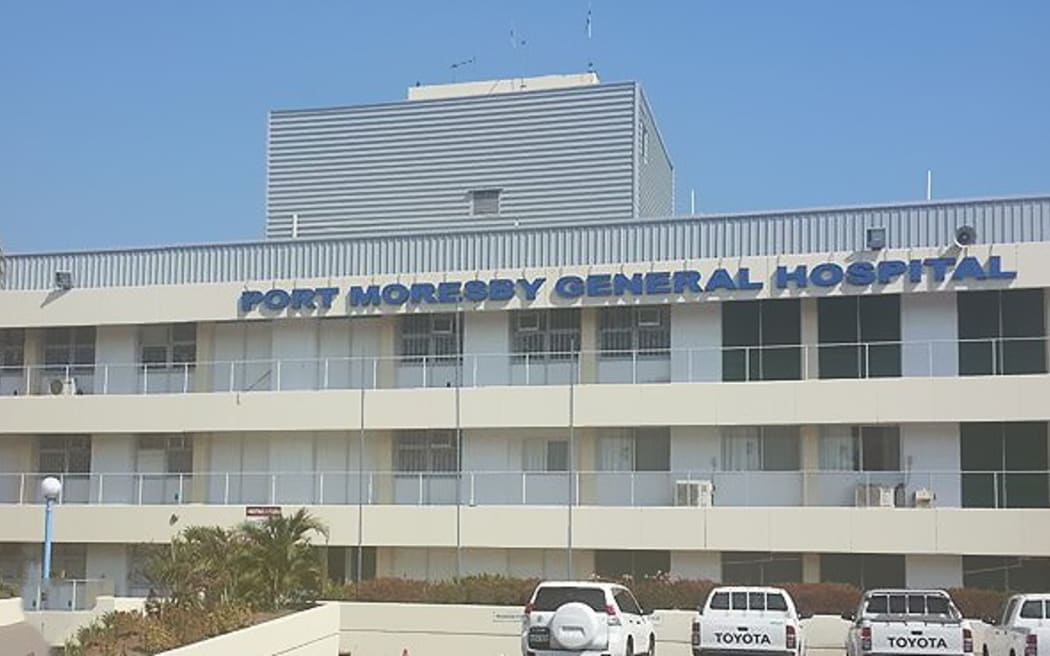
Port Moresby General Hospital Photo: POM General Hospital
To say "it isn't easy to manage Papua New Guinea's health sector", is a tired cliché within bureaucratic and political circles.
Any hint of a defense on social media of the frontline implementers of the system is viciously shot down in a barrage of comments and accusations by members of the public.
Health Minister Dr Lino Tom is continuously bombarded with messages from colleague MPs on the floor of parliament about late delivery of medicines, lack of staff in health facilities and chronic vaccine shortages.
It's a never-ending vicious cycle.
On one hand, Tom tries to manage the political front while pushing one massive arm of a sluggish public service machinery.
It's difficult to explain to angry Papua New Guineans that many of the problems that the National Department of Health (NDOH) is trying to resolve is beyond their area of operation and have remained largely unresolved for the last 30 years.
For instance, road connectivity is not a health department responsibly. But it has a direct correlation to the ability of health workers to save lives. The cost of fuel and, more recently, the availability of foreign exchange, updated census figures and the timely approvals by the Bank of Papua New Guinea are just some of the socioeconomic determinants that affect health service delivery.
Socioeconomic determinants account for up to 70 percent of factors impacting health care in Papua New Guinea.
The sector has not been without its own faults. In 2019, a Parliamentary Public Accounts Committee investigation uncovered widespread corruption in medicine distribution and pharmaceutical contracts.
The investigation resulted in changes to senior staff members and a re-examination of existing systems.
Now, that's not to say, the concerns from the ordinary citizen are not serious.
The average person bears the brunt of terminally ill health system that desperately needs money to run efficiently. As users of the health service, a mother and child are told that the facility they're seeking help from can't supply the antibiotics or the TB drugs.
People in remote areas travel into town only to be told that the hospital can't assist them.
At the senior management level of the NDOH, the story is the same.
The funding shortfalls are critical and support has to be sought from other donor partners who have always stepped in during tough periods.
Last year, the NDOH faced enormous challenges.
In the 2023 budget, the NDOH requested K386 million. It received only K236m. The Department had to contend with a K150M shortfall over 12 months.
By October, the situation had become critical. Funding shortages coupled with central bank delays in the approval of foreign exchange contributed to a visible shortage of medicines in nearly all facilities.
The country's vaccine budget had also been cut by K20m. The NDOH had to seek urgent funding support from its international partners.
In December, the Health Minister Dr Osborne Liko travelled to Lae to meet with the Management and staff of the Morobe Provincial Health Authority and the Area Medical store. It was part of efforts to understand the situation on the ground.
What they found was a system that desperately needed support.
Immediate arrangements were made to resolve the staff shortage that plagued the Lae Area Medical Store with the first 40 job vacancies advertised on the 15th of December.
At policy level, it is a hub of activity. Reforms are being implemented, slowly but surely amidst fierce criticism that the public service machinery is moving at a snail's pace.
But there are tangible results which will see long term benefits. Amendments to the Provincial health Authority (PHA) Act has been passed by parliament as part of moves to improve governance.
A public health policy and accompanying legislative amendments are being developed. It will take some time before it all comes into full effect.
There worrying new trends that confront Papua New Guinea in 2024, and again, the socioeconomic determinants are important factors to keep in mind.
Papua New Guinea will have to take stock of its population through a long overdue census that has not yet happened.
It will have to deal with the impact of low vaccination rates in 2023 as well as the HIV/AIDS prevalence rate has reached reached 1 percent - the biggest increase since the early 2000s when aggressive media campaigns kept the spread in check.
UNAIDS has also warned that the use of new drugs like methamphetamine, are contributing to the risky behaviour and the corresponding rise in HIV/AIDS prevalence rate.


